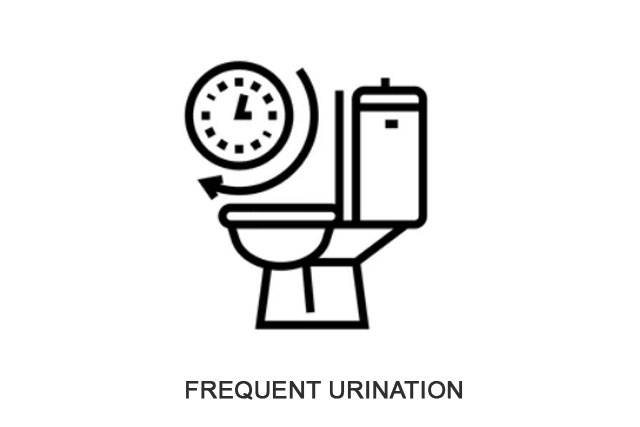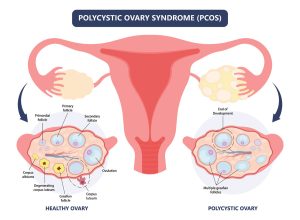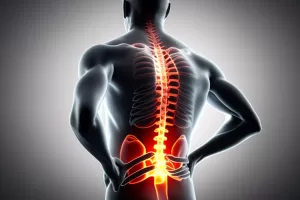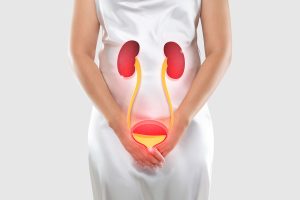Every person knows how often they visit the restroom throughout the day. If you drink more, you start peeing more often. But what if your fluid consumption hasn’t changed and you still visit the toilet too often? This may signal frequent urination. A distinctive feature of this problem is that you can’t delay the need to pee, and it may sometimes feel that your bladder is still not empty.
Causes of Frequent Urination
The causes of frequent urination in men and women are similar. However, there is a condition that is specific to frequent urination in women only. Let’s learn some more.
Medical Conditions
Diseases related to the urinary tract take the number one reason people suffer from frequent urination. The diseases provoking such a symptom include but are not limited to
- Urethritis (infection of the urethra);
- Benign prostatic hyperplasia (enlarged prostate);
- Prostatitis (prostate inflammation);
- Urinary tract infection (UTI);
- Diabetes.
To determine which of these is to blame for your frequent need to pee, you should visit a doctor and pass some bloodwork and urinalysis to understand the problem.
Medications

Treatment with certain drugs can make your kidneys work faster, thus increasing the frequency of urination. The preparations known for this effect are diuretics (also called water pills) and antihypertensives (meds you use to reduce your blood pressure).
If this symptom is bothering you a lot, contact your doctor to correct the dose or switch to other preparations.
Pregnancy
Do you remember us mentioning a women-specific cause for frequent urination? Well, this is it. Pregnancy is a common reason for women to visit the bathroom more than a dozen times a day. This symptom may show early in pregnancy when you still have no baby bump, but your bladder already feels the consequences of the uterus growing in size. This problem may get worse toward the end of pregnancy.
Lifestyle
Your lifestyle choices may also be the reason for your overactive bladder. The things that may increase your urge to urinate are:
- Smoking. More than 33 million people around the globe suffer from frequent urination because of smoking cigarettes. Nicotine found in them irritates the walls of the bladder, thus provoking the urge to pass urine.
- Caffeine intake. Caffeine in caffeinated beverages, as well as coffee and tea, works as a diuretic. This is the reason you need to pee more often. It is also one of the causes of frequent urination at night, called nocturia.
- Alcohol consumption intensifies urine excretion due to the inhibition of the vasopressin hormone production, which regulates the excretion of fluid from the body.
Emotional Stress
The release of the stress hormones our body goes through when experiencing emotional stress makes the bladder remind about itself more often. But once the emotional impact is gone, the body gradually gets back to the norm.
Frequent Urination Symptoms
The worrying signals to be aware of include:
- Need to pee more often than usual implies that the number of your visits to the restroom during the day increased significantly.
- Feeling of urgency to urinate. You cannot hold the urine long and delay going to the bathroom. It makes you rash to the toilet fast.
- Weak urine stream is another symptom you may experience. It is more common in men, though. A weak stream may signal the urethra walls are suppressed by the enlarged prostate.
- Pain or burning sensation during urination is typical of urinary tract infection.
- Urinary incontinence means you cannot control your urination. This problem is common in men and women but their causes are usually different in different sexes. In women, incontinence is often provoked by weak pelvic floor muscles, whereas men have to deal with it due to prostate issues. It may show through urine leakage when you cough or sneeze or due to your inability to control the overactive bladder.
Diagnosis
The sooner your problem gets diagnosed, the better perspectives are waiting for you ahead. Timely treatment helps prevent complications and allows stopping the exacerbation of your condition.
Physical Examination
A physical examination is one of the basic checks your doctor will perform to find the cause of the problem. In women, pelvic organ prolapse can be found as a result. In men, prostate enlargement is what can be diagnosed with a physical examination.
Medical History
Your doctor will need some information to try to figure out the route of your problem. They may ask you a range of questions, including whether you have any other bothersome symptoms and when you feel the urge to urinate (daytime or night). Your doctor will also ask you about your daily water consumption, your intake of meds, and any lifestyle choices that may provoke the problem. Based on your answers, the medical specialist can make some assumptions concerning your health.
Urine Tests
The following step is passing some urine tests. Typically, you’ll be sent for urinalysis – a test aimed at specifying your urine content (protein, glucose levels, leucocytes, etc.). Also, healthcare specialists may require you to pass a urine culture test to eliminate the chance that you have a bacterial infection of the urinary tract.
Imaging tests
The visualization of your urinary system may also be helpful on the way to diagnosing the reason for your frequent urination. Imaging tests like CT scan, ultrasound, and MRI can give your doctor a complete picture of what is going on in your body.
Frequent Urination Treatment
In fact, you will treat not frequent urination but the medical condition that causes it. Based on that, the treatment recommendations may vary. Anyway, you should consult a doctor for professional advice and never go into self-treatment as this may bring more harm than benefit.
Medications
If the cause of your problem is an overactive bladder, your medical specialist will likely recommend taking Tolterodine, Oxybutynin, Trospium, or other meds that help relax the bladder and reduce the urge to urinate.
People whose symptoms are provoked by UTI will benefit from taking antibiotics. And those whose issues result from prostate enlargement may be offered alpha-blockers or PDE5 inhibitors to relax the prostate muscles and relieve the lower urinary tract symptoms.
In diabetic people, proper control over blood glucose can be the solution to the problem of frequent urination.
Frequent Urination – Lifestyle Changes
It’s worth eliminating all the factors that may cause diuretic effects or irritate your bladder. For instance, you can switch to decaffeinated coffee or substitute it with fresh berry smoothies. Quit or at least reduce smoking.
Bladder training is another technique you can try to reduce the number of your visits to the restroom. Try to increase the intervals between passing urine. On average, it takes about three months to reach visible results.
Surgery
When conservative treatment brings no effect, your doctor may consider surgical intervention. The type of surgery depends on the core of the problem. They may include:
- Sling procedures, which support the bladder and hold the urine inside when you cough, exercise, or do other things that may provoke incontinence.
- Implantation of artificial bladder sphincter is a common procedure for people whose prostate was removed.
- Prostate shrinkage surgery is another option for men to deal with frequent urination.
Prevention
Although some medical conditions are out of your control, others can be prevented.
Diet

Your diet should be rich in fiber. Fruit, vegetables, and berries should be present in your every meal. On the other hand, you should exclude the products and drinks that may irritate your bladder, like:
- coffee, tea;
- alcohol;
- spicy food;
- tomatoes and products containing tomato paste;
- chocolate;
- citrus fruits and juices.
Also, you should drink enough plain water to ensure the healthy function of your genitourinary system. Water prevents the formation of bladder and kidney stones and helps reduce the risks of infection.
Physical Activity
There is strong evidence of pelvic floor muscle training being effective for the prevention of peeing frequently. These exercises work beneficially for both sexes and help improve control over the bladder.
Frequent Urination – Summary
Excessive urination is very common among men and women. The causes of this problem are known, and many of them can be prevented and treated. So whenever you notice you start peeing more often than usual, don’t delay a visit to the doctor.
FAQ
When should I worry about frequent urination?
The absence of apparent reasons for your frequent urination should make you seek medical attention.
How many times is too frequent urination?
Passing urine more than 4 to 8 times per day is considered frequent urination.
Is it normal to pee 20 times a day?
No. Such a frequency of urination means you should visit a doctor.







